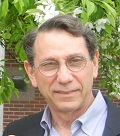Outstanding Achievement Award
 Fred Ausubel
Fred Ausubel received his B.S. in Chemistry from the University of Illinois in 1966 and his Ph.D. in Biology from the Massachusetts Institute of Technology in 1972. Formerly, he was Assistant and Associate Professor in the Department of Cellular and Developmental Biology at Harvard University. Fred is currently Professor of Genetics at Harvard Medical School and is the Karl Winnacker Distinguished Investigator in the Department of Molecular Biology at Massachusetts General Hospital.
Fred’s scientific work concerns host-microbe interactions. In the 1970s and 1980s, his laboratory worked on the molecular basis of symbiotic nitrogen fixation, the process by which legumes, in concert with a bacterial symbiont, convert atmospheric nitrogen into ammonia. Currently, the laboratory is investigating microbial pathogenesis and host defense in the plant Arabidopsis thaliana and the nematode Caenorhabditis elegans. The laboratory has also adopted a genomics approach to study virulence in the opportunistic bacterial pathogen Pseudomonas aeruginosa strain PA14, which remarkably is a “multi-host” pathogen of both plants and animals. The laboratory is particularly interested in those aspects of pathogenesis and the host innate immune response that have been conserved in evolution.
Fred was elected to the National Academy of Sciences in 1994, the American Academy of Microbiology in 2002, and the American Academy of Arts and Sciences in 2003. In addition to serving on a variety of editorial boards, Fred is founding editor of the widely-read Current Protocols in Molecular Biology. Fred is the 2014 recipient of the Thomas Hunt Morgan medal for lifetime achievement from the Genetics Society of America.
